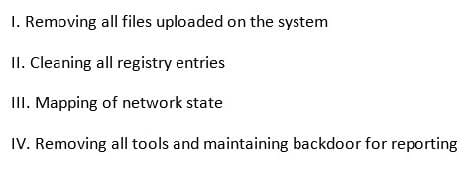Exam Details
Exam Code
:312-50V10Exam Name
:EC-Council Certified Ethical Hacker (C|EH v10)Certification
:EC-COUNCIL CertificationsVendor
:EC-COUNCILTotal Questions
:747 Q&AsLast Updated
:Apr 14, 2025
EC-COUNCIL EC-COUNCIL Certifications 312-50V10 Questions & Answers
-
Question 341:
You have successfully compromised a machine on the network and found a server that is alive on the same network. You tried to ping it but you didn't get any response back.
What is happening?
A. ICMP could be disabled on the target server.
B. The ARP is disabled on the target server.
C. TCP/IP doesn't support ICMP.
D. You need to run the ping command with root privileges.
-
Question 342:
The Heartbleed bug was discovered in 2014 and is widely referred to under MITRE's Common Vulnerabilities and Exposures (CVE) as CVE-2014-0160. This bug affects the OpenSSL implementation of the transport layer security (TLS) protocols defined in RFC6520. What type of key does this bug leave exposed to the Internet making exploitation of any compromised system very easy?
A. Private
B. Public
C. Shared
D. Root
-
Question 343:
During a blackbox pen test you attempt to pass IRC traffic over port 80/TCP from a compromised web enabled host. The traffic gets blocked; however, outbound HTTP traffic is unimpeded.
What type of firewall is inspecting outbound traffic?
A. Application
B. Circuit
C. Stateful
D. Packet Filtering
-
Question 344:
It is a kind of malware (malicious software) that criminals install on your computer so they can lock it from a remote location. This malware generates a pop-up window, webpage, or email warning from what looks like an official authority. It explains that your computer has been locked because of possible illegal activities on it and demands payment before you can access your files and programs again.
Which of the following terms best matches the definition?
A. Ransomware
B. Adware
C. Spyware
D. Riskware
-
Question 345:
It is a regulation that has a set of guidelines, which should be adhered to by anyone who handles any electronic medical data. These guidelines stipulate that all medical practices must ensure that all necessary measures are in place while saving, accessing, and sharing any electronic medical data to keep patient data secure.
Which of the following regulations best matches the description?
A. HIPAA
B. ISO/IEC 27002
C. COBIT
D. FISMA
-
Question 346:
You are performing information gathering for an important penetration test. You have found pdf, doc, and images in your objective. You decide to extract metadata from these files and analyze it.
What tool will help you with the task?
A. Metagoofil
B. Armitage
C. Dimitry
D. cdpsnarf
-
Question 347:
Which of the following is a component of a risk assessment?
A. Administrative safeguards
B. Physical security
C. DMZ
D. Logical interface
-
Question 348:
Under the "Post-attack Phase and Activities", it is the responsibility of the tester to restore the systems to a pre-test state.
Which of the following activities should not be included in this phase? (see exhibit)
Exhibit: A. III

B. IV
C. III and IV
D. All should be included.
-
Question 349:
Which of the following is a command line packet analyzer similar to GUI-based Wireshark?
A. tcpdump
B. nessus
C. etherea
D. Jack the ripper
-
Question 350:
Which of the following is the BEST way to defend against network sniffing?
A. Using encryption protocols to secure network communications
B. Register all machines MAC Address in a Centralized Database
C. Restrict Physical Access to Server Rooms hosting Critical Servers
D. Use Static IP Address
Related Exams:
112-51
EC-Council Certified Network Defense Essentials (NDE)212-77
EC-Council Certified Linux Security212-81
EC-Council Certified Encryption Specialist (ECES)212-82
EC-Council Certified Cybersecurity Technician (C|CT)212-89
EC-Council Certified Incident Handler (ECIH)312-38
EC-Council Certified Network Defender (CND)312-39
EC-Council Certified SOC Analyst (CSA)312-40
EC-Council Certified Cloud Security Engineer (CCSE)312-49
ECCouncil Computer Hacking Forensic Investigator (V9)312-49V10
EC-Council Certified Computer Hacking Forensic Investigator (V10)
Tips on How to Prepare for the Exams
Nowadays, the certification exams become more and more important and required by more and more enterprises when applying for a job. But how to prepare for the exam effectively? How to prepare for the exam in a short time with less efforts? How to get a ideal result and how to find the most reliable resources? Here on Vcedump.com, you will find all the answers. Vcedump.com provide not only EC-COUNCIL exam questions, answers and explanations but also complete assistance on your exam preparation and certification application. If you are confused on your 312-50V10 exam preparations and EC-COUNCIL certification application, do not hesitate to visit our Vcedump.com to find your solutions here.